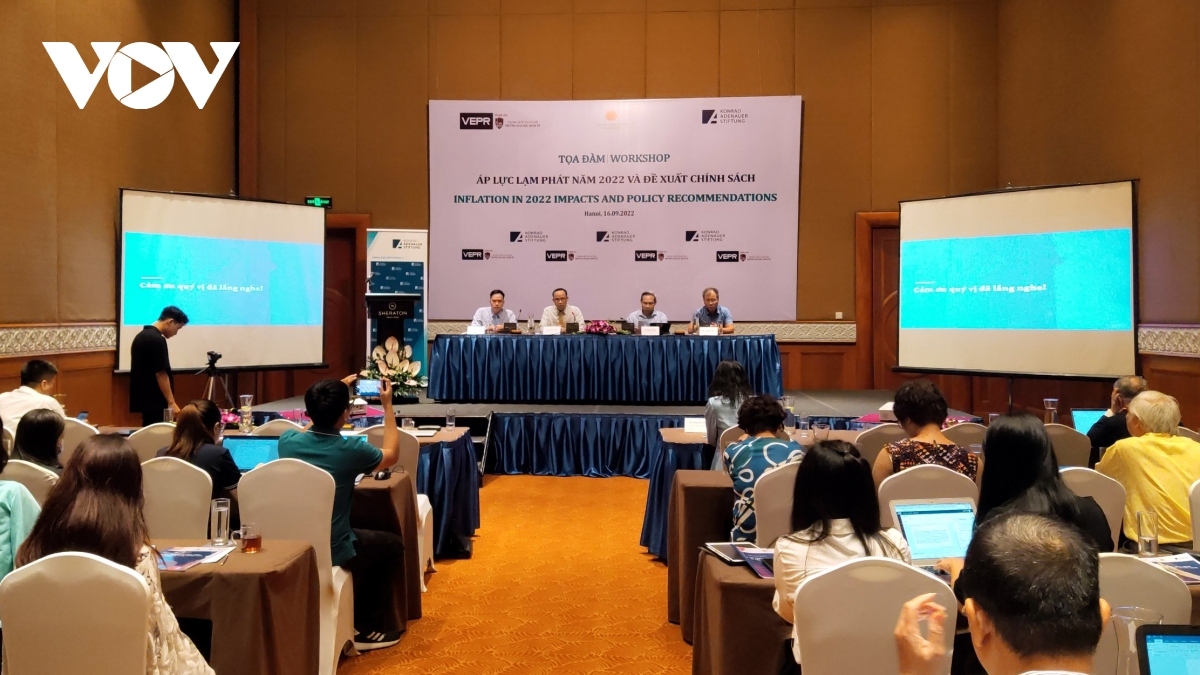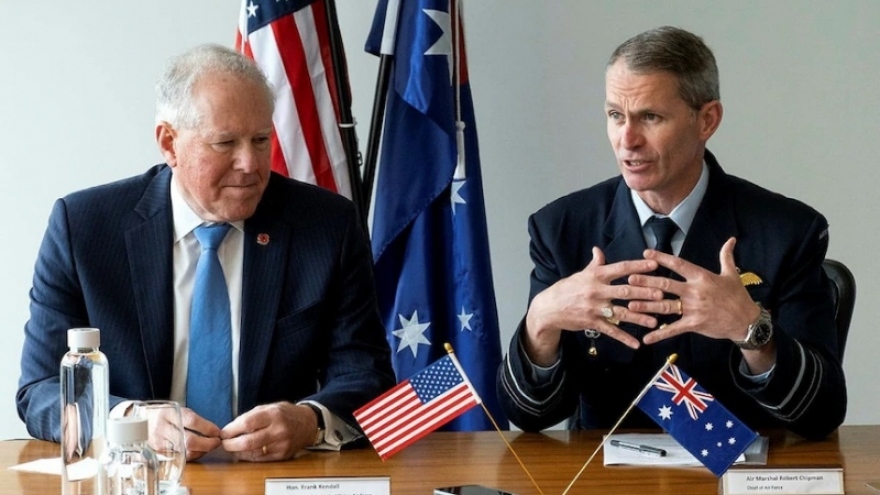VEPR forecasts Vietnamese inflation at 3.5% to 3.8% this year
VOV.VN - Vietnam’s inflation rate is projected to be at between 3.5% and 3.8% this year as there remains plenty of room for adjustments to be made to policies in order to accelerate the country’s economic recovery moving forward, according to economic advisers.
This assessment was made by experts at a September 16 workshop running with the theme of “Inflation in 2022: Impacts and Polity Recommendations”, which was co-hosted by the Vietnam Institute for Economic and Policy Research (VEPR) and Konrad-Adenauer-Stiftung Vietnam.

This assessment was made by experts at a September 16 workshop running with the theme of “Inflation in 2022: Impacts and Polity Recommendations”, which was co-hosted by the Vietnam Institute for Economic and Policy Research (VEPR) and Konrad-Adenauer-Stiftung Vietnam.
Despite inflation not being a major problem, consumers have so far felt the pinch from inflationary pressure, a factor which will continue to linger over the remaining months of the year.
Political tension caused by the ongoing Russia-Ukraine conflict will continue to pose the most significant risk to Vietnamese inflation and commodity prices, while the current trend of global monetary tightening may help to alleviate inflationary pressures from the outside.
Furthermore, China's prolonged zero-COVID policy is anticipated to exacerbate global inflation. However, inflationary pressure is forecast to ease ahead during the final months of the year due to the decline in global food and oil prices and improvements in the global supply chain.
Experts have assessed that with both internal and external impacts, the domestic inflation rate this year is projected to be at between 3.5% and 3.8%.
Nguyen Quoc Viet, deputy director of VEPR, emphasised that aside from maintaining stability and reducing inflationary pressure, there remains ample room for policy adjustments to be made by deploying the Government’s economic recovery and development scheme and the public investment package.
These moves are anticipated to provide a solid foundation in which economic recovery can take place, thereby leading to greater stability in the coming years.
Viet went on to underline the necessity of removing barriers in terms of business climate and creating equality among economic sectors to allow firms to strengthen co-operation and become further involved in the global value chain, as well as utilising incentives from the various Free Trade Agreements (FTAs) that the country has signed.



